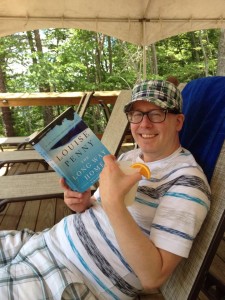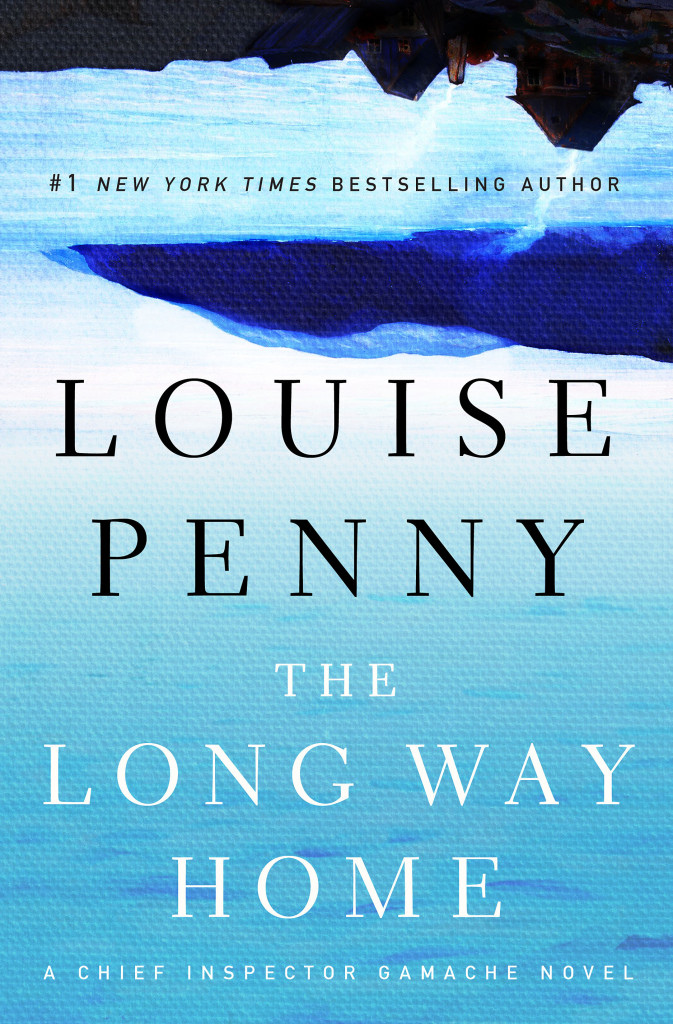“…You grew up and you moved away
Across a foreign sea
And what was left was what was kept
Was what you gave to meYou thought you’d left it all behind
You thought you’d up and gone
But all you did was figure out
How to take the long way home…”Rosanne Cash – The Long Way Home (from The River & The Thread)
It is only a coincidence, but these lyrics from the most recent Rosanne Cash album, perfectly capture the mood and themes of Louise Penny’s latest Chief Inspector Gamache novel, The Long Way Home.
Last year, in the BOLO Books review of How The Light Gets In, I discussed the spiritual nature of Louise Penny’s work. This is of course evident again in The Long Way Home, but the new novel narrows the focus onto the nature of humanity – both how man is inherently good and how things can go terribly wrong when certain factors clash.
Yes, The Long Way Home is a mystery. Would we expect less from Louise Penny? But it is also a meditation on life and inspiration. Armand Gamache may be retired from his position with the Sûreté du Québec, however his mind still approaches situations from the vantage point of an investigator. When Clara Morrow tells Armand that her estranged husband has not returned to Three Pines on the anniversary date they agreed upon, they both suspect that something is wrong.
What follows is part missing persons story and part quest narrative. As dictated by the limitations of his retirement, Armand Gamache needs to enlist the help of many others to help Clara find Peter. Together, the citizens of Three Pines must determine if Peter was running from something or to something.
Fans of the series will delight in the larger roles played by Reine-Marie, Clara, Myrna, and even Ruth. Of course, Jean-Guy Beauvoir is once again at Armand’s side. In true Penny style, the investigation leads them to other fan favorites as well – such as the Asshole Saint and the androgynous Bean.
 Readers no doubt remember that when Peter left Three Pines, he was dealing with jealousy and depression. Because both he and his wife are artists, these emotions stem directly from that shared bond. Peter was jealous of Clara’s artistic success and depressed over his lack of the same. Could that be the reason he failed to return? Or is there something more tragic preventing his return?
Readers no doubt remember that when Peter left Three Pines, he was dealing with jealousy and depression. Because both he and his wife are artists, these emotions stem directly from that shared bond. Peter was jealous of Clara’s artistic success and depressed over his lack of the same. Could that be the reason he failed to return? Or is there something more tragic preventing his return?
Much of The Long Way Home deals with the role of one’s career in determining self-worth. So often, our lives are dictated by the work we do, so when that work is no longer central to life, we may find ourselves floundering. As things change around us, our perspective must also change. The wounds these characters carry within will define them, but they must each individually decide how that definition is going to manifest. One of the great perils of the creative mind is the dichotomy between internal contemplation and external validation.
What makes a Louise Penny novel so special is the reader’s connections to these characters. The bond readers feel is like that with their own family, and thus we truly care about the outcome for each of them. The journey – physical, mental, and emotional – that each character takes in their efforts to locate Peter Morrow weave and interconnect to create a tapestry of longing and regret, passion and hopefulness. And it is only by facing this work of art called “life,” that true healing can begin. It is Louise Penny’s gift that not only does she allow healing for her fictional characters, but that she can also elicit healing in her readers.
_____________________________________________________________________ Disclaimer: Both a print galley and audio version of this title were provided to BOLO Books by the respective publishers. No review was promised and the above is an unbiased review of the novel.


Beautiful review! And so completely spot on.
Thank you Kaye. Writing about Louise’s books is always difficult. Words seem to fail when discussing the brilliance of her art – But still we try. Glad that I was able to convey my thoughts effectively for another huge fan such as yourself.